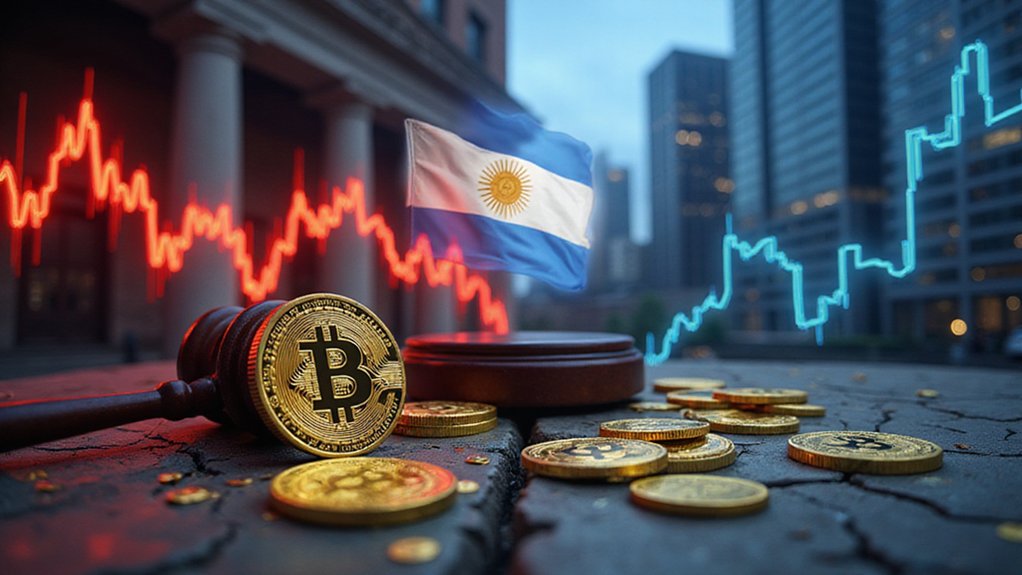As Bitcoin surged past its all-time high of $107,600 in December 2024, the cryptocurrency market experienced unprecedented growth, creating fertile ground for innovative firms to thrive. One such company, which saw its valuation skyrocket amid the market's 88% year-over-year expansion to $3.4 trillion, now faces serious allegations that threaten its future.
Former intelligence operatives have uncovered evidence suggesting the firm's remarkable success stemmed from clandestine connections to hacking groups. These revelations come at a time when institutional adoption of cryptocurrency has reached new heights, with Bitcoin ETPs managing $250 billion in assets and MicroStrategy's addition to the Nasdaq 100 bolstering investor confidence.
Explosive revelations link crypto firm's meteoric rise to shadowy hacker networks amid unprecedented institutional cryptocurrency adoption.
The investigation revealed sophisticated methods allegedly employed by the company to manipulate markets while presenting a legitimate facade to investors. During a period when EV/Revenue multiples more than doubled to 5.3x, the firm attracted significant venture capital as part of the $11.5 billion invested in crypto startups throughout 2024.
The timing proves particularly problematic as regulatory frameworks mature globally. Analysts highlight how MicroStrategy's strategic approach to viewing Bitcoin as a superior store of value compared to gold has influenced broader market sentiment. With a more crypto-friendly U.S. administration and the EU's MiCA regulations setting clearer boundaries, the industry had begun shedding its reputation for lawlessness. Compliance experts note this case highlights why regulatory oversight remains vital despite improved self-regulation.
The scandal underscores persistent cybersecurity vulnerabilities in the ecosystem, even as technological advancements integrate blockchain more deeply with traditional financial systems. The high annualized volatility of 81% for Bitcoin continues to attract both legitimate investors and potential bad actors seeking to exploit market fluctuations. Security analysts point to the case as evidence that sophisticated threats continue to evolve alongside legitimate innovation. Experts recommend implementing strong security measures including two-factor authentication and unique passwords for all cryptocurrency-related accounts to protect against similar threats.
Market response has been measured, with Bitcoin maintaining its upward trajectory toward analyst projections of $150,000-$185,000 by 2025's end. However, institutional investors report heightened due diligence regarding potential partners.
As global adoption trends continue upward with increased merchant acceptance and cross-border payment applications, industry leaders emphasize that weeding out bad actors remains essential for cryptocurrency's mainstream legitimacy.





